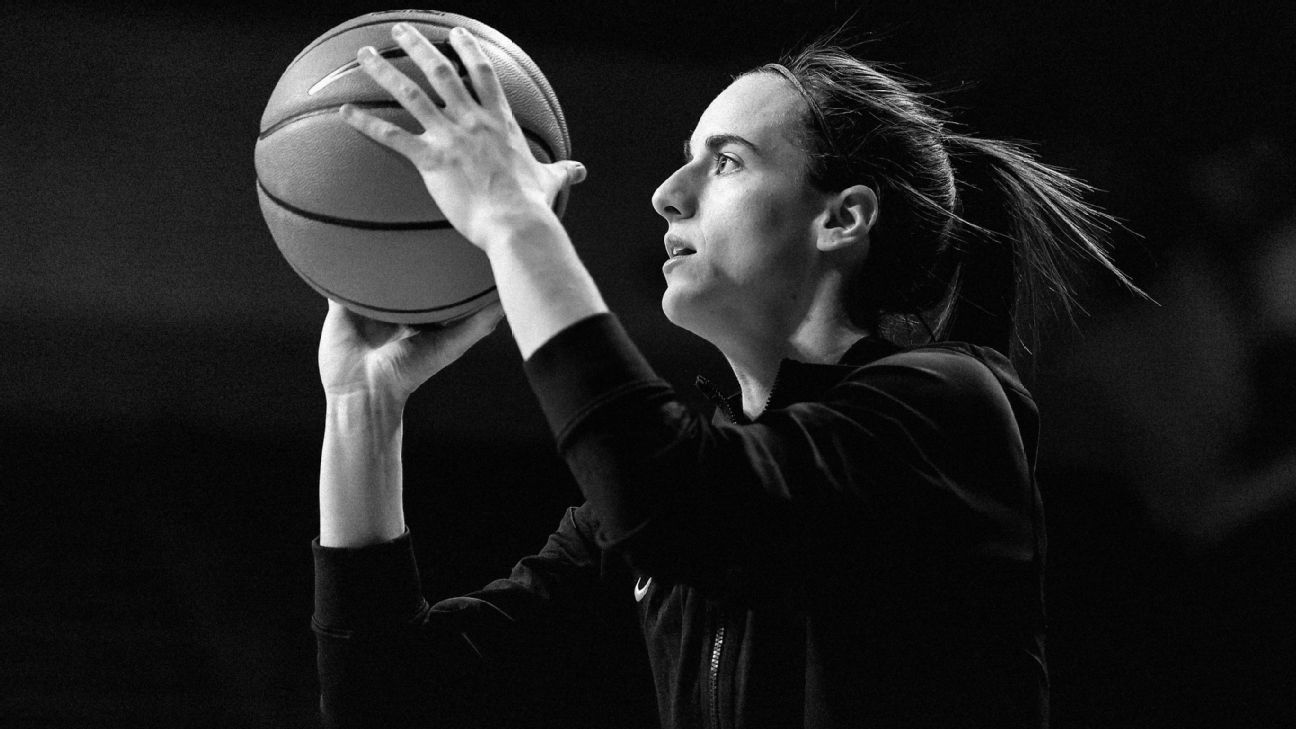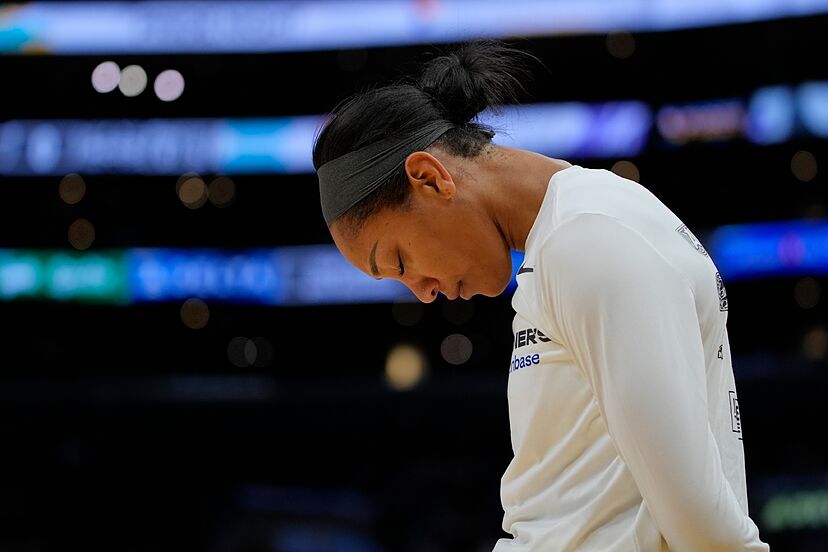This was supposed to be Wilson’s moment. Back in the Finals, defending a championship, fresh off another MVP award, she had dominated all season with the kind of intensity that etches players into legend. On paper, the series promised a clash of titans, featuring other polarizing figures like Dana Bonner and Alyssa Thomas, making it “must-see TV.” Yet, when the lights dimmed and the game tipped off, the energy in the arena was “lifeless.” Social media quickly erupted with photos of vacant sections and bewildered comments about tickets selling for as little as $35, even $5 in some reports. The contrast was brutal and undeniable when juxtaposed with images of sold-out arenas and scalped tickets for hundreds during regular-season games featuring Caitlin Clark and the Indiana Fever.

The glaring disparity was not lost on A’ja Wilson. Athletes, by their very nature, thrive on the roar of the crowd, the palpable energy that fuels every possession. But in an arena where “you could hear the basketball echo off the hardwood,” something within Wilson reportedly “snapped.” Courtside reporters noted her demeanor as “tense, frustrated, almost defeated.” This wasn’t merely about the game’s outcome; it was about the chilling implications of what those empty seats represented.
According to multiple sources close to the situation, during timeouts and halftime, Wilson was “venting hard,” and the target of her frustration was not the league’s marketing team or even the fans, but “Caitlyn Clark.” Even though Clark’s season had concluded weeks earlier, her “presence, or rather her absence, was the only thing anyone could talk about.” For a player of Wilson’s caliber, who has dedicated her career to elevating the league, to be overshadowed by a player who wasn’t even there had to “sting like nothing else.”
From Wilson’s perspective, this shift must feel deeply personal. She has earned championships, MVPs, and a reputation for consistent dominance in a league that has fought tirelessly for respect. Then, a rookie, a college sensation, arrives, and “suddenly the entire sports world flips upside down.” Arenas that once struggled to hit 70% capacity are now selling out in minutes, and TV ratings that once “hovered in the low hundreds of thousands are suddenly spiking into the millions.” Clark didn’t just bring attention; she brought “a cultural shift,” a “tidal wave of new fans who had never watched women’s basketball before.”
However, the core issue, as the analysis points out, is that “those fans weren’t just WNBA fans. They were Caitlin Clark fans.” And when her season ended, “they left.” They didn’t linger for the Finals, nor did they seemingly care about the “legacy matchups” or “elite defense” the league wanted to promote. They cared about “the story, the excitement, the connection they felt watching Clark play.” Without her, the Finals felt “hollow, like watching a movie where the main character doesn’t show up.” Viewership numbers for the Finals reportedly plummeted to less than half, possibly even a third, of the semi-final games featuring Clark. This was a “nightmare scenario” for a league that had been celebrating record growth just weeks prior.

The frustration became palpable on the bench, with cameras catching Wilson “slamming her towel down” in anger. Her body language conveyed not just disappointment in the game but a deeper ire at the situation, at the league, and at the narrative that had completely shifted away from her accomplishments. Regardless of her on-court brilliance, the story was no longer about her; it was about the player who was conspicuously absent. Online, fans mercilessly posted side-by-side comparisons of packed Fever games versus the “ghost towns” of the Finals, delivering a clear message: “One player is the draw. Everyone else is just background noise.”
Adding to the growing sense of disarray was the perceived silence of Commissioner Cathy Engelbert. Earlier in the season, when ratings soared, Engelbert was a vocal presence, quick to claim credit for the league’s success. Now, faced with empty seats and plummeting interest, she “suddenly went radio silent,” offering “no statements, no acknowledgment of the empty seats, no plan to address the elephant in the room.” This perceived evasion only amplified fan resentment, leading to accusations that she was “quick to take credit when Caitlyn Clark was filling arenas but vanished the second her stars couldn’t do the same.”
The consequences of this alarming trend extend far beyond immediate ticket sales. Whispers are circulating that NBA Commissioner Adam Silver, whose organization provides the WNBA’s financial backbone, is paying “close attention” and his “patience was reportedly wearing thin.” His investments in the WNBA’s reputation are now yielding images of “empty arenas, bitter players, a fractured fan base.” Reports even suggest Silver’s office is preparing “a comprehensive review of the WNBA’s direction,” implying that “heads might roll” if the current leadership cannot rectify the league’s “fractured identity.” Sponsors, who invested heavily during the “Caitlyn Clark wave,” are also reportedly “getting nervous,” demanding assurances that their investment in audience growth isn’t being wasted on a failing product.
The stark contrast between Wilson and Clark’s approaches further illuminates the league’s predicament. Wilson, often vocal about feeling “overlooked” and responding to “haters,” embodies a narrative of demanding respect. Clark, conversely, “never said a word. She just played.” Her humble, hungry, and exciting style resonated with fans, building a connection that transcended basketball. When she was absent, that critical “belief disappeared.”

By the conclusion of Game Two, the damage was done. The Finals had become “background noise, a punchline,” a symbol of how far the league had seemingly “fallen without its biggest star.” For A’ja Wilson, the silence in that arena was “devastating.” She had dedicated her career to reaching this moment, only for “nobody to show up.” The “ghost of Caitlyn Clark had won without even stepping on the court.”
The WNBA now stands at a crucial crossroads. It must either acknowledge the transformative impact of one player and strategically build upon that momentum, or it risks clinging to a fading narrative, watching its fan base continue to shrink. While A’ja Wilson remains a phenomenal talent, her individual greatness, as the commentary suggests, “means nothing if the crowd no longer believes you represent them.” The fans have made their choice, and for now, “they’re not watching for championships. They’re watching for connection, for excitement, for Caitlyn Clark.” Until the league can recapture that magic, the echoing emptiness of its biggest stage will continue to tell a story no one wants to hear—a story of a grand moment becoming its most embarrassing.